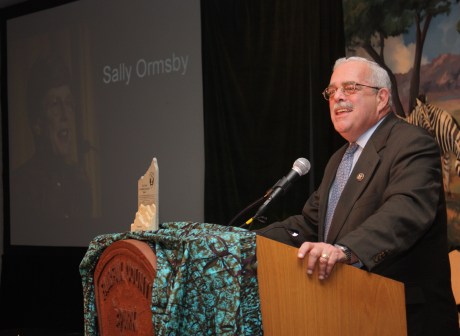Obama administration grants another $80M+ for smart cities

One year after launching its Smart Cities Initiative, the White House announced Monday the federal government is expanding its efforts by investing an additional $80 million-plus in localized technology-driven initiatives.
The new investments will cover a few key areas, including nearly $15 million to tackle energy and climate challenges in cities and communities, more than $15 million to evolve transportation options, and more than $10 million to improve public safety and disaster response, the White House said in a fact sheet.
More than 70 cities and communities are now participating in the initiative, according to the administration.
[Read more: White House commits $160 million to ‘smart cities’ research]
In one new National Science Foundation investment, Chattanooga, Tennessee, researchers will test “how an entire urban network of connected and autonomous vehicles can automatically cooperate to improve travel efficiency and operate safely during severe weather events,” according to the fact sheet.
The funds follow continuing administration efforts to bring autonomous vehicle considerations to the forefront. Just last week, for example, the administration released new guidance on autonomous vehicles.
The administration has also been investing in a next generation transportation infrastructure. For example, as part of their initial $160 million in investments last year, the Transportation Department and White House conducted a smart transportation challenge. Columbus, Ohio, won for its plan to create a transportation system based on driverless shuttle cars and connected buses.
[Read more: Columbus wins federal Smart City Challenge, $140M award]
The new money is not all going to next generation transportation, though. For example, Texas will receive funding from the Department of Homeland Security to develop low-cost flood sensor-based tools to help with flood response and predictive analytics.
And the MetroLab Network — which was announced at last year’s event — is launching a new effort to help communities improve social programs using big data, replicating “what works, such as the collaboration between University of Washington and Seattle to use predictive analytics to identify precisely when city services succeed in helping homeless individuals transition into permanent housing, offering the promise of a future of personalized intervention.”
The new commitments kick off a flurry of activity that will follow in the next few days at the Smart Cities Week conference in Washington, D.C.






